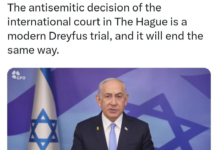Veteran Arab journalist Abdel Bari Atwan says an agreement between Russia and Turkey has averted an humanitarian disaster in the Syrian city of Idlib, but the accord may have only delayed an inevitable military offensive.
The most visible outcome of the Sochi summit at which the presidents of Russia, Turkey and Iran conferred for four and half hours was the announcement by Russian Defence Minister Sergey Shoigu that there will be no military operation in Idlib.
This means that the Russian side has agreed to the ceasefire that Turkish President Recep Tayyip Erdogan had asked for at the September 3 Tehran summit, and that was rejected by the Russian and Iranian presidents at the time. It also means that a humanitarian disaster in Idlib has been averted, for the time being at least.
But there are still many unanswered questions concerning many of the issues that were discussed behind closed doors:
First, what is the aim of establishing the 20-km deep demilitarised zone in the area where Syrian forces and the opposition armed factions face each other? And who will reside in that zone? Is the goal to collect the civilians from Idlib city as a prelude to moving them away in a subsequent round of fighting? Or is the aim to bring the armed elements together temporarily in a small pocket?

Second, what price have the Russians extracted from the Turks in return for agreeing to postpone a military offensive?
Third, what will be the fate of the Tahrir ash-Sham (Nusra Front) organisation and the Salafi factions allied to it? Will Turkish forces take it upon themselves to deal with them militarily – in other words to liquidate them?
Subscribe to our newsletter and stay updated on the latest news and updates from around the Muslim world!
Fourth, what is the timeframe for the demilitarised zone and when will it return to Syrian sovereignty? Will it continue to be guarded by Russian and Turkish military patrols without the Syrian army?
Fifth, why were the journalists who attended the press conference not allowed to pose questions to the Russian and Turkish presidents after they made their statements which were confined to announcing the agreement on establishing a demilitarised zone?
Sixth, the Russian and Turkish defence ministers exchanged a signed document regarding Idlib. What is in this document, and what is the roadmap that specifies both sides’ commitments?
Seventh, Erdogan said that relations with neighbouring countries should be based on principles of good neighbourliness. Who are these neighbours, and what form will these relations take? Is he talking about Turkey’s Syrian or its Iranian neighbours, or both?
Some possible answers
We have tried hard to find out the answers to most or all of these questions. We contacted our sources in Turkey, Syria, and Russia, succeeding in some cases and failing in others. The upshot can be summarised in a few preliminary points:
First, the armed elements in Idlib are to withdraw to a narrow 10 kilometre-wide strip along the province’s border with Turkey, which means that they will have to evacuate Idlib city completely.
Second, the city will definitely return to Syrian sovereignty by agreement between the Turkish and Russian sides.

Third, the Russian side will end all cooperation or coordination with the Kurds inside or outside Syria in compliance with a Turkish demand.
Fourth, there is agreement between Russia and the US on the withdrawal of Syrian armed elements from Tanaf base in the southeast Syria to Idlib, specifically to the above-mentioned border strip, and the dismantling of the US base at Rukban.
Fifth, the withdrawal of all heavy weapons from Idlib, with Turkey making a clear commitment in this regard.
Sixth, Erdogan has been given a grace period of grace until December 9, by which time he should have honoured his commitments in this regard. If he fails to do so, the solution will be military: invading Idlib will be the alternative.
Seventh, one outstanding point still needs clarifying: What will happen after the armed jihadi and Salafi elements are gathered in the narrow border strip? Will they be liquidated at a later stage? Or will Turkey absorb them, especially the ethnic Turks among them? Will the foreigners – who came from Europe, the Gulf states, Russia’s Islamic republics, or China (the Uighurs) – be handed over to their respective governments?
What is certain is that there is a secret agreement between Erdogan and Putin in this regard that will not be publicised, at least not in the coming few months.
The Russian leadership’s contacts with Damascus and Tehran to explain the agreement began as soon as the two leaders’ press conference ended. We should not be surprised if there are leaks over the coming few days. But the important thing is that the Russian-Turkish agreement has prevented, or postponed, a humanitarian disaster and averted bloodshed in Idlib.
That is positive and laudable. But how long will it last?




















